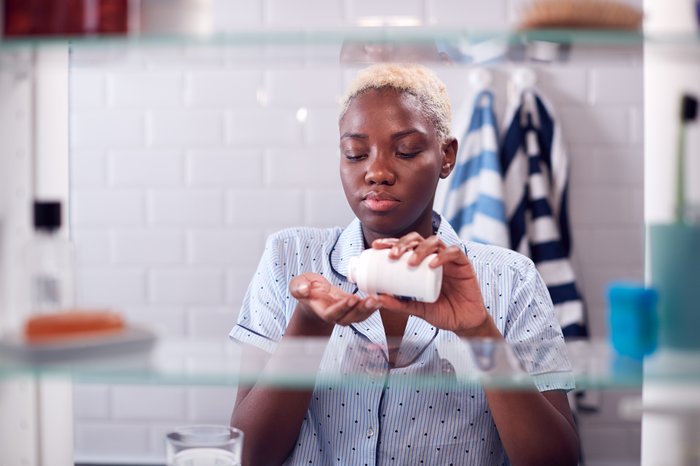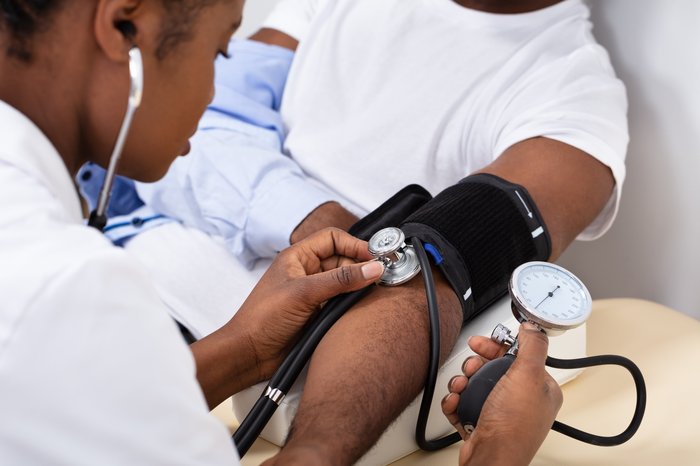What is AKI?
Acute kidney injury (AKI) is a sudden drop in kidney function, which means that your kidneys do not work as well as they should. This can range from a small loss of function to complete failure.
AKI normally happens as a complication of another condition.
It does not mean that you have hurt your kidneys in the same way you can hurt other parts of your body (for example, by falling over or getting hit).
AKI is usually temporary and often gets better without causing any long-term problems. However, it is important that is detected early and treated promptly.
AKI is not the same as chronic kidney disease (CKD) which does not get better, but can be slowed or managed with treatment.
Kidney facts
Your kidneys are small, fist-sized organs, shaped like beans.
- They are in the middle of your back, one on each side of your spine.
- Most people have two kidneys, but you may be born with only one.
Your kidneys help to:
- Clean your blood.
- Control your blood pressure.
- Make urine and keep the right amount of fluid in your body.
- Make a hormone that helps produce red blood cells.
- Control minerals in your body like potassium and phosphate.
- Help maintain healthy bones.
What are the symptoms of AKI?
If you do have symptoms, these may include:
- producing less urine
- being very thirsty
- feeling or being sick
- swelling of the legs or feet
- feeling generally ill, like a hangover
- excessive tiredness
- confusion
These symptoms may appear suddenly over just a few days.
AKI is more common in people over the age of 65, especially if they have other health conditions, but it can affect people of all ages.
How is AKI diagnosed?
AKI is diagnosed by a blood or urine test.
You may also have an ultrasound scan of your kidneys to check for any other problems.

What causes AKI?
AKI can be caused by:
- an illness or infection
- a reaction to medication
- low blood pressure
- dehydration
- kidney stones.
How is AKI treated?
Treatment depends on the cause of AKI.
If the AKI is caused by dehydration, it may get better by simply drinking more water. If you are very dehydrated, you may be given a drip that delivers fluid directly into your body through a tube in your arm.
You may be prescribed antibiotics to treat any infection. Your doctor may advise you to temporarily stop taking some of your existing medication or adjust the dose.
AKI is usually treated by your GP and most people do not need to see a specialist kidney doctor.
However, in severe cases, you may need to go into hospital to have dialysis. This is a treatment for severe kidney disease and uses a machine to remove the waste products and excess fluid that build up in your body when your kidneys stop working.
Most people with AKI only need to have dialysis for a few days or weeks until their kidneys start working again.
What happens next?
Most people with AKI make a full recovery and do not need any long-term treatment.
You will be monitored by your GP who will check your blood pressure regularly.
You should check with your doctor before taking any new medicine or herbal supplements in case they could damage your kidneys.

More information about AKI
AKI: download or order Kidney Care UK's information leaflet
You can download our Acute Kidney Injury leaflet for free.
You can also order a printed copy of Kidney Care UK’s Acute Kidney Injury leaflet to be sent to you in the post.

Publication date: 11/2023
Review date: 11/2026
This resource was produced according to PIF TICK standards. PIF TICK is the UK’s only assessed quality mark for print and online health and care information. Kidney Care UK is PIF TICK accredited.